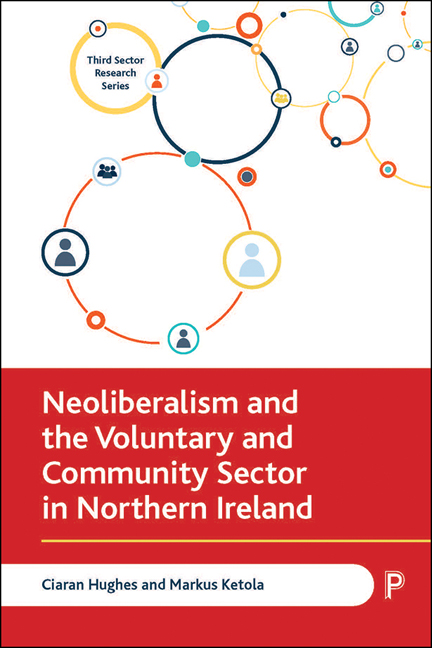Book contents
- Frontmatter
- Contents
- List of abbreviations
- Acknowledgements
- Series editor’s foreword
- one Introduction
- two Neoliberal enrolment? The ‘partnership turn’ in government rhetoric and policy
- three Getting connected: celebrating the value of connections and networks
- four Inside the networks: the rhetoric and the reality
- five Independence of voice, purpose and action
- six Conclusion
- Notes
- References
- Index
two - Neoliberal enrolment? The ‘partnership turn’ in government rhetoric and policy
Published online by Cambridge University Press: 30 April 2022
- Frontmatter
- Contents
- List of abbreviations
- Acknowledgements
- Series editor’s foreword
- one Introduction
- two Neoliberal enrolment? The ‘partnership turn’ in government rhetoric and policy
- three Getting connected: celebrating the value of connections and networks
- four Inside the networks: the rhetoric and the reality
- five Independence of voice, purpose and action
- six Conclusion
- Notes
- References
- Index
Summary
In recent decades, the political mainstreams of western democracies and transnational institutions have increasingly seen civil-society institutions (Davies and Pill, 2012, 193), civil society–state partnerships (Davies, 2011a, 41) and the development of a renewed sense of community as part of ‘the answer to the challenges of a changing world’ (Blair, 2000, cited in Levitas, 2000, 189). In policy terms this signalled a ‘turn’ to partnership and ‘network governance’ (Davies, 2011a, 41), and successive administrations in the UK, together with their quasi-independent think tanks (Levitas, 2005, 168), identified the VCS as a potential site for cheaper, alternative and innovative ways of delivering public services and regenerating communities (see Milbourne, 2013, 37). Through a process of ‘moral hectoring and mild coercion’ (Kearns, 1995, 158), these administrations promoted the idea of a self-governing and depoliticised ‘active citizen’ that is aware of their responsibilities and obligations to themselves, their neighbours, their community and the nation (Davies, 2011a). Civil society, and the VCS in particular, was hailed as the answer to the ‘wicked problems’ of increasing social fragmentation, growing polarisation between the rich and the poor (Milbourne, 2013) and the (alleged) breakdown of a sense of community and moral responsibility in communities that were perceived to be deficient, deviant and dependent (Imrie and Raco, 2003, 7; Leonard, 2004, 928).
Over the decades, governments across the political spectrum ‘elevated certain charitable entities as partners in the business of public welfare’ (Corcoran, 2017, 287), and the organised sector came to be seen as a key player in governance and service delivery because, it was claimed, it had the potential to deliver new and innovative solutions to social challenges (see Brown, 2006, in Haugh and Kitson, 2007, 986). Reflecting a convergence of different political and sectoral interests, by the late 1990s policy narratives were promoting the notion of a single, distinct and coherent ‘third sector’ that could be an object and instrument of policy (Kendall, 2000; Imrie and Raco, 2003; Carmel and Harlock, 2008; Acheson, 2010), and this discursive framing helped to secure the VCS's political and financial support and temporarily mask some of its internal tensions and divisions (Alcock, 2010, 19).
- Type
- Chapter
- Information
- Publisher: Bristol University PressPrint publication year: 2021



